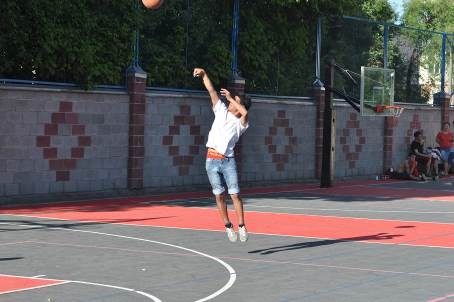
Aug. 2014—Not long ago, Ramil*, now 19, was one of nearly 11,000 children who grow up in orphanages and boarding schools in the Kyrgyz Republic. Many are required to leave at the age of 15 to 17 because of official regulations. Having to adjust to a new life with limited support, some end up on the streets—a life Ramil knew all too well.
When Ramil was 6 years old, his father was put in prison. Ramil’s mother left the family several years earlier. Placed in the care of an aunt who abused alcohol, Ramil would frequently leave and fend for himself on the streets. Eventually, he ended up at a special school in Belovodsk village where he lived and studied—making several escapes—until the age of 16. Special schools are closed institutions for boys aged 9 to 16 who break the law, for example, through vagrancy and refusing to go to school.
In 2012, when the time came for him to leave the school, Ramil was one of 11 youth invited to live in the Kairat—which means “strength” in Kyrgyz—a transit house supported by the Care Leavers Support component of Jasa.kg, a four-year USAID program that integrates graduates of residential institutions into broader Kyrgyzstani society. The program is implemented by the International Youth Foundation in partnership with Oasis, a local NGO.
Ramil, along with 80 other care leavers, participated in a range of activities for care leavers of residential institutions living in and around Bishkek. The Jasa.kg project supports Oasis-run youth center activities, which include sport events, cookery courses, evening cinema and English courses.
“I learned to cook, clean, save money, look out for others, communicate better and apply my skills,” says Ramil. He also received support in filling out official papers and thinking through his educational and employment goals.
If something went wrong, social workers would encourage Ramil to try again. The result? He started to believe in himself.
“Now I have my own opinion,” he says. “Before, I just listened to others and did what they said. Now I have a clear vision of my own.”
In August 2013, Ramil began studying social work at the Kyrgyz State Technical University. With his first year of study now complete, he is committed to learning what he needs to know to support the thousands of other young people in the Kyrgyz Republic facing similar challenging situations.
*Name changed to protect identity.
LINKS
Follow @USAIDCtrAsia, on Facebook, on Flickr, on YouTube







Comment
Make a general inquiry or suggest an improvement.